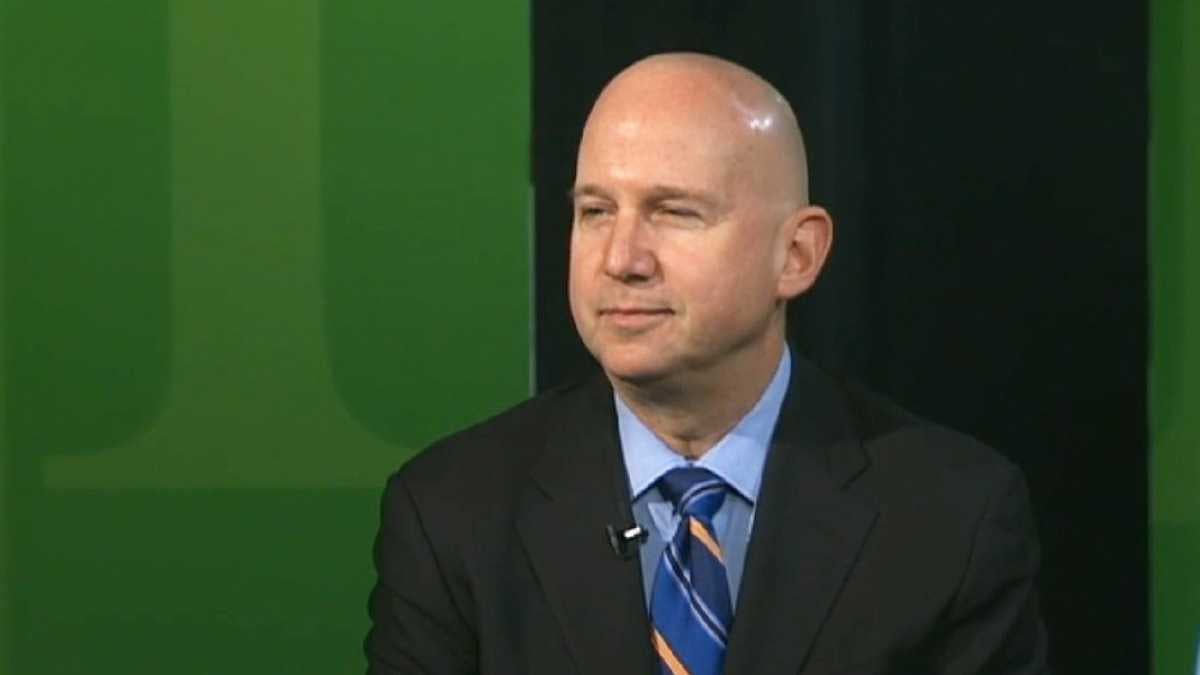Governor Markell launches Delaware Blockchain Initiative

Delaware Governor Jack Markell (file photo/WHYY)
Governor Jack Markell unveiled his plan during a keynote address at a technology conference in New York focused on blockchain innovation.
By embracing emerging blockchain and smart contract technology with the Blockchain Initiative the State of Delaware intends to help enterprises lower costs, speed up and automate manual processes, and mitigate fraud.
“Smart contracts offer a powerful and innovative way to streamline cumbersome back-office procedures, lower transactional costs for consumers and businesses, and manage and reduce risk,” Governor Markell said in a press release.
Blockchain is known as the technology substructure of bitcoin digital currency, allowing a network of computers to share a digital ledger of transactions using cryptography to ensure security.
The governor has tasked the Delaware State Bar Association’s Corporation Law Council to explore the need for any clarification to the Delaware corporate law to authorize corporations to leverage “distributed ledger shares.”
“It is a long-standing tradition in Delaware for the Delaware State Bar Association’s Corporation Law Council to support the general assembly and the governor in maintaining robust corporate laws and determine if amendments to existing legislation is necessary,” Matt O’Toole, a partner at Potter Anderson & Corroon LLP and Chairman of the Corporation Law Council said. “The governor has tapped us to look at the possibility of enabling blockchain technology to use shared ledgers.”
In addition, the governor has named an Ombudsperson, Andrea Tinianow, the State Director of Corporate and International Development.
Tinianow explained the first steps of the project, “What we’re doing now is considering the law and how Delaware works with businesses who want to be on the blockchain. We are not rushing. We are being smart about it with our partners, meeting with experts and establishing relationships to ensure its success.”
Technology company Symbiont, a distributed ledger and smart securities startup that focuses on smart contracts, and a legal team from Pillsbury Winthrop Shaw Pittman LLP will advise on the technical aspects of the Blockchain Initiative.
Tom Ross, hired as a spokesperson by Delaware Board of Trade Holdings Inc., the holding company looking to establish a stock exchange in downtown Wilmington, said that they have been in discussions with Global Delaware about the “cutting edge” technology.
“Within the financial services arena numerous firms are gravitating toward blockchain for many reasons, and most certainly the advantages of security. It’s very appropriate for blockchain to benefit Board of Trade Holdings and for Delaware to get out in front of it,” Ross explained.
According to the governor’s office, the state anticipates the technology will bring tremendous efficiencies and speed to the sophisticated commercial transactions for which Delaware has long set the standard.
“In the age of high frequency trading and global flow of capital, we become dependent on a structure where information can move, you will support commerce and speed it up,” said Lawrence Hamermesh, Ruby Vale Professor of Corporate and Business Law at Delaware Law School. “Ledgers used to be written with a quill pen. Now you will see a rapid evolution involving commercial transactions happening electronically.”
Markell also announced the state will be using the technology and resources from Symbiont, to archive, catalog and secure government records with a Public Archives project. State monies will not be used to fund the project, Symbiont is providing the platform for the project and is not charging the state.
Delaware’s Chief Deputy Secretary of State, Rick Geisenberger described the case study, “The archives project is a way to stick our toes in the water at a state level by combining multiple public records databases into one, allowing for tracking of documents and creating public access of records currently filed on paper.”
WHYY is your source for fact-based, in-depth journalism and information. As a nonprofit organization, we rely on financial support from readers like you. Please give today.

